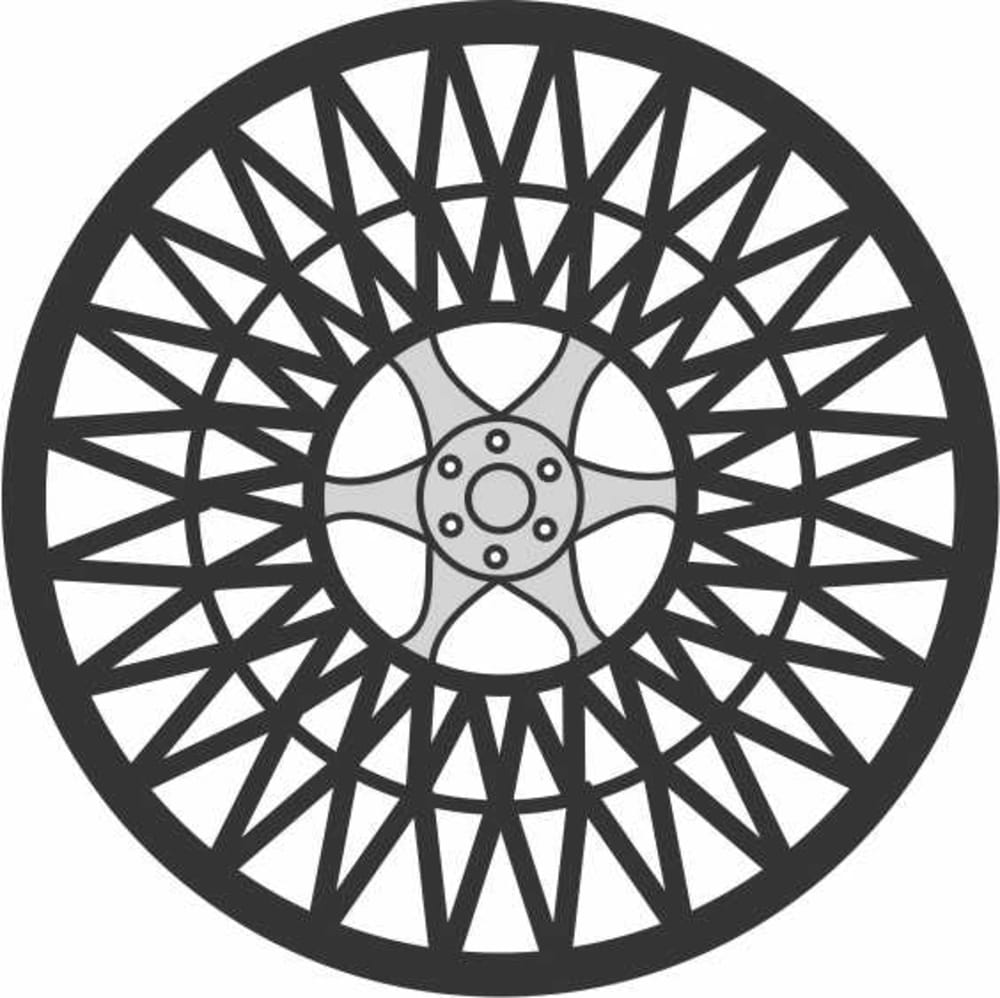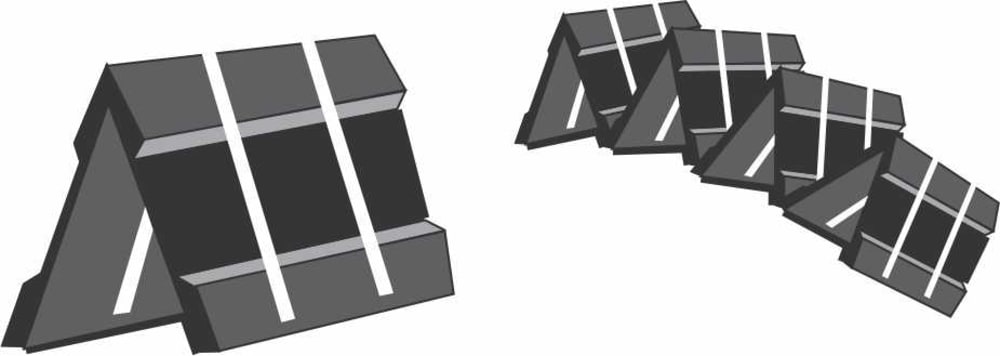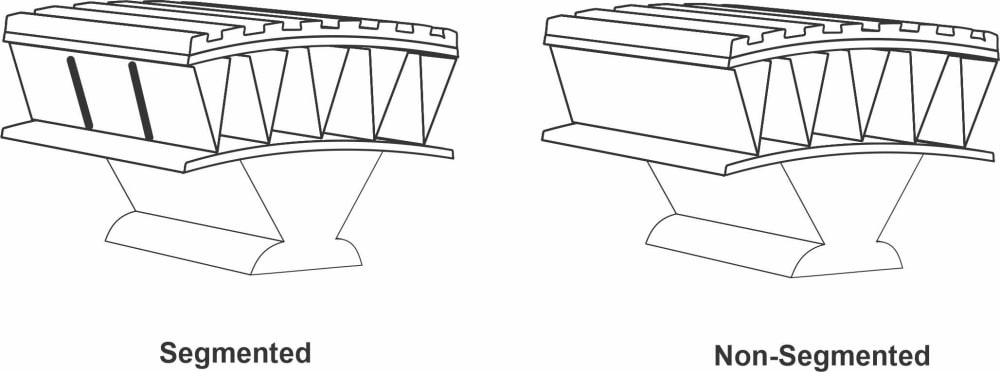The prime deficiency of a pneumatic tire is its dependence on air. A tire that has lost enough pressure to become distorted affects fuel efficiency and the stability of the vehicle. A flat tire can damage the wheel and possibly the vehicle, placing the operator and other vehicles in danger and should be considered an emergency situation.
The traditional approach has been the use of “legs” or “fins” that are constructed perpendicular to the rotation of the tire. While effective, they may compress or deteriorate over time and use. Furthermore, the “fin” configuration may not rapidly return to its’ original shape when contacting and re-contacting objects.
This new, non-pneumatic tire design improves shock absorption, cushioning, spring, and comfort. By using an A-shaped segment, added measures of shock absorption and strength are found, improving overall performance and durability. The A-shaped, segmented components can easily conform to various shapes and sizes. The component itself can be variable in height, width, thickness, and spacing making it ideal for non-pneumatic tires.
One aspect of this technology uses A-shaped components that attach perpendicular to tire rotation. Another configuration uses the A-shaped components that follow the tire rotation. Finally, the components can be configured into a lattice structure.
Using a non-pneumatic tire prevents the damage and danger associated with low or flat tires.
With the advent of autonomous vehicles, the need for maintenance-free tires is becoming essential. Also, lawn and garden power equipment and some off road applications could benefit from airless tires. Therefore, this non-pneumatic design for vehicle tires achieves reduced friction and improved fuel economy, while considering the need for acceleration and stopping, with the added feature of increased safety.
Like this entry?
-
About the Entrant
- Name:Geoff Mccue
- Type of entry:individual
- Software used for this entry:Coreldraw
- Patent status:patented








